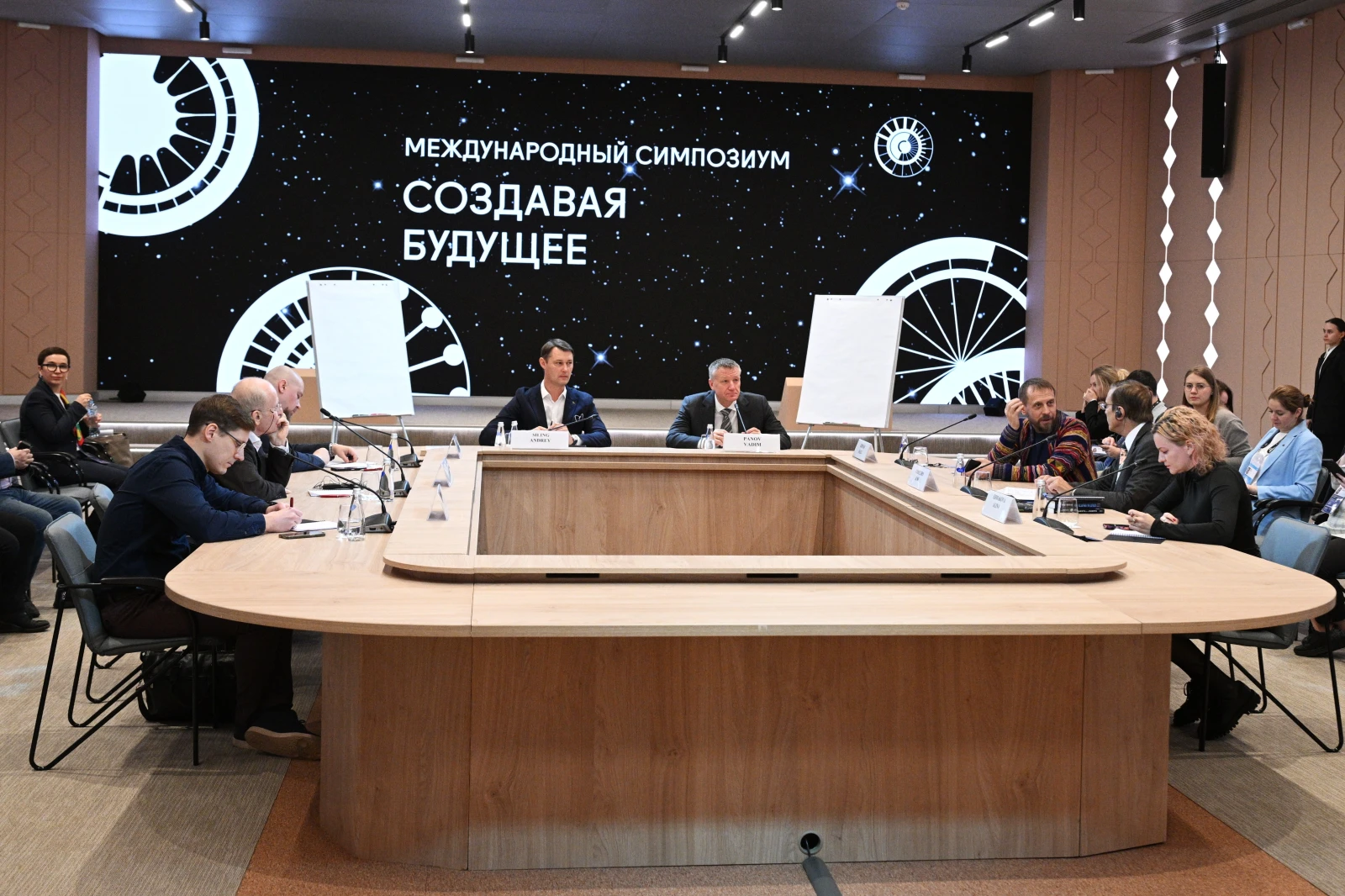Formation of future generations’ worldview discussed at the International Symposium "Inventing the Future"

On November 4, the first day of the International Symposium "Inventing the Future" in Moscow, a brainstorming session called "What and How Will We Learn?" was held at the National Centre RUSSIA grounds. The expert community was invited to discuss themes related to the transformation of the educational process and the creation of conditions for the harmonious development of humanity in the age of artificial intelligence.
In particular, experts discussed the main challenges currently facing the education system. Among these are the acceleration of the pace of life due to technological development, clip thinking and simplification, standardization and the unification of many life processes.
"Modern digital civilization allows for the faster development of new technologies, which makes it seem that the world and life are accelerating. This leads to the following: when choosing a profession, children think it is more important to acquire narrow knowledge that is in demand right now. However, it is essential to remember that we will be guided not by numbers, but by people who possess a fairly broad outlook," noted science fiction writer Vadim Panov.
Furthermore, during the brainstorming session, experts presented questions whose solutions, in their opinion, would not only elevate education to a new level but also promote the harmonious development of individuals.
"We have a lot of tools that can immediately provide answers to any question. Therefore, one of the main questions we must ask ourselves is how to rekindle and nurture the desire and purpose to learn in children. Another important question relates to preserving unity in a world that is trying to fragment into conflicting parts," emphasized Alexei Fedoseev, President of the Association of Technological Clubs Participants and leader of the project "National Cyber-Physical Platform 'Berloga.'"
Participants of the meeting paid great attention to issues of spiritual development. Co-chair of the Energinet Working Group, leader of the School of Ontological Thinking, and CEO of T-System LLC, Oleg Grinko, reminded attendees that humans created artificial intelligence and gave it speech. This is why it is essential to remember that amid the global development of technology, people and their communication remain paramount.
"The education system, family, and society as a whole must strive to create the image of a highly cultured person. We live in a world where different generations, religions, and professions coexist, so to avoid conflicts, children need to be raised in the spirit of rational dialogue and partnership, demonstrating the right example. If every word and action we take aligns with the concept of culture, then there is a chance we can save the world," stated Suheil Farah, a writer, translator, professor, religious scholar, cultural scientist, Lebanese-Russian academic, president of the Open University "Dialogue of Civilizations," Doctor of Philosophy, member of the Russian Academy of Education (RAO) and the Russian Academy of Natural Sciences (RAEN), Chair of the Lebanese-Russia House.
This opinion was shared by Alina Ermakova, Director of Design for the B2C Transactional Banking Block at Sberbank PJSC. She noted that not only professional training but also spirituality coupled with developed emotional intelligence will lead us to growth in the future. According to Ermakova, to address modern challenges, it is necessary to have a good understanding of technology and to understand oneself.
In turn, futurist and engineer from Spain, José Cordeiro, emphasized that the future of humanity is different from our present and does not resemble the past.
"Thanks to artificial intelligence, we are entering the first intelligent generation, which will be the smartest that has ever existed. We stand on the brink of incredible opportunities — superintelligence, immortality, and life on multiple planets. This is the future that everyone should strive for. I am confident that Russia can be the leading country in this," said José Cordeiro.
The brainstorming session held within the "Future of Humanity" track revealed through expert methods that the development of humanity is impossible without forming a worldview among future generations of researchers and engineers. The evolution of the labor market and production processes dictates the need for dialogue among specialists about the best practices for training the personnel who are currently creating the future. The moderator of the discussion was Andrei Siling, Executive Director of the Autonomous Non-Profit Organization "Platform for National Technological Initiative" and leader of the "Thinking Clubs" project.
"What is essential today is the system of values as an educational space. We must understand how to create and maintain it using the tools and technologies available to us, and what image of future we are shaping. Depending on the questions we ask and the system of values we come from, we will achieve that outcome," emphasized Andrei Siling.
The International Symposium "Inventing the Future" is being held from November 4 to 6. Participants include scientists, researchers, futurists, science fiction writers, and representatives from government bodies from 101 countries, including Russia, India, Italy, Iran, China, the UAE, Serbia, the USA, and France. The program features over 60 sessions across four tracks: "Future of Human," "Future of Technology," "Future of Multipolar World," and "Future of Civilizations." The program and event broadcasts are available at the website future.russia.ru.
The International Symposium "Inventing the Future" is the first event of the National Centre RUSSIA, which was established on July 1, 2024, by the order of President of the Russian Federation Vladimir Putin. The Centre aims to preserve the legacy of the International RUSSIA EXPO and showcase the achievements of the country and its citizens. The work of the Centre involves federal authorities, state companies, corporations, and regions.
